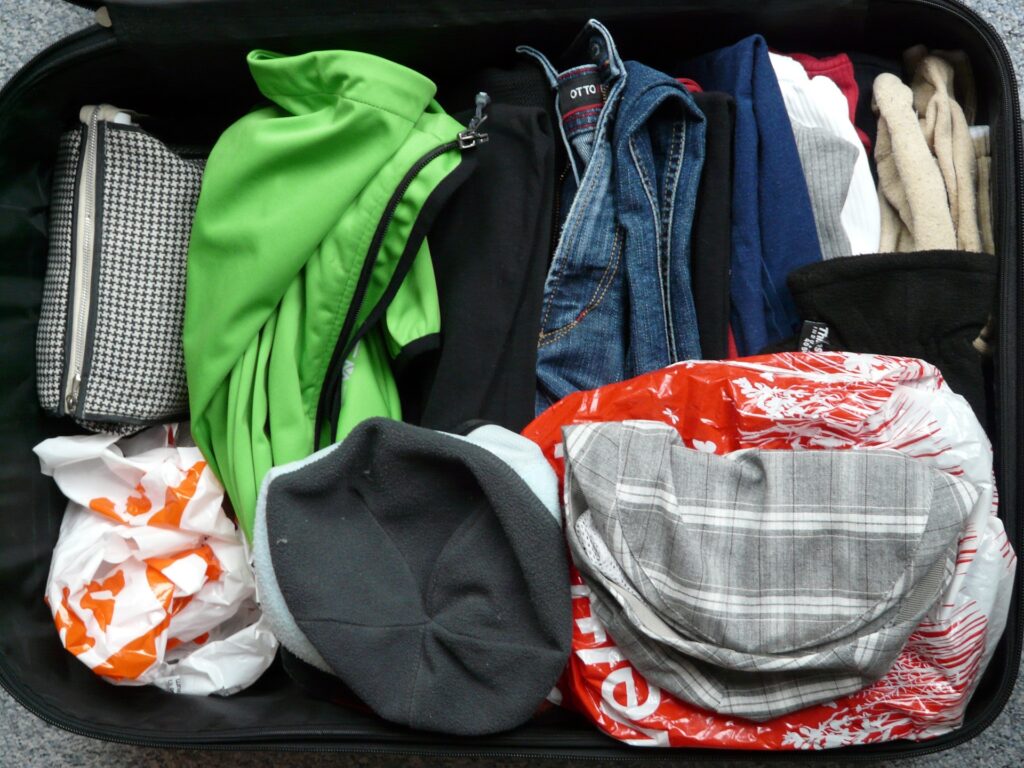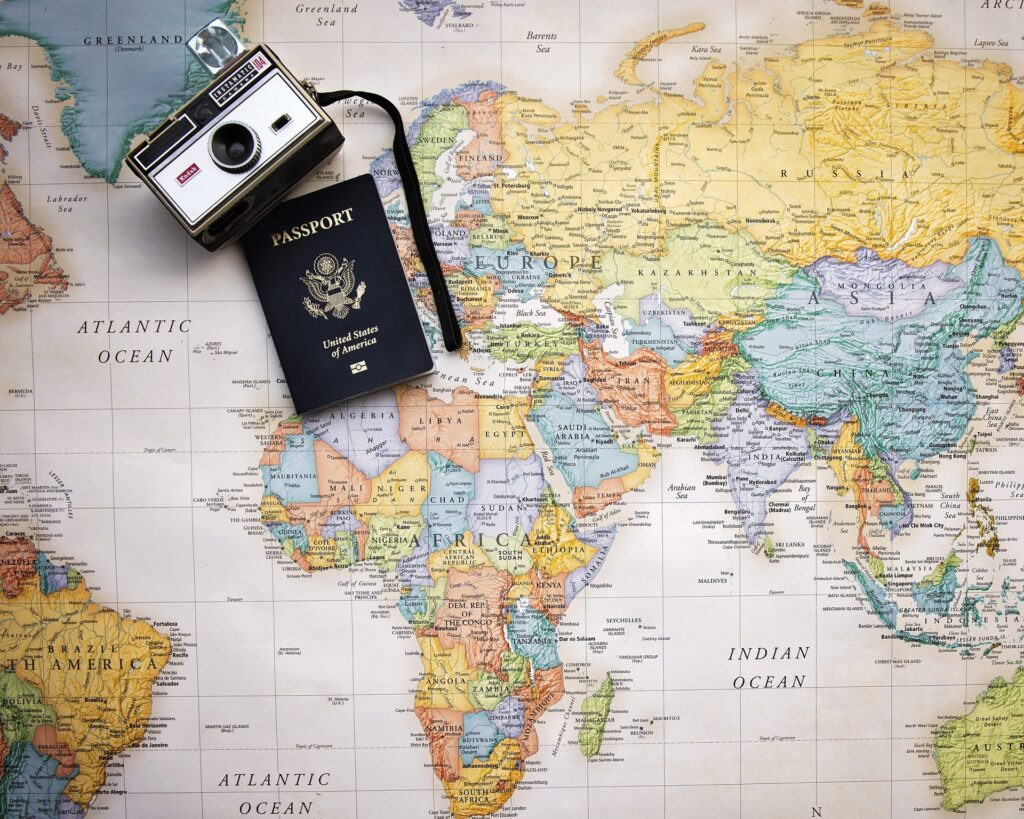Traveling while expecting may be a wonderful and fulfilling experience that presents a special chance to bond with your unborn child and make wonderful memories. It does, however, also bring with it a unique set of difficulties and considerations. Careful planning and preparation are necessary to guarantee a safe and comfortable travel. Every little thing matters when it comes to having a pleasurable trip, from contacting medical professionals to knowing when to go.
Whether you’re traveling by car, train, bus, air, or sea, there are certain safety precautions you and your infant need to take. Keeping yourself hydrated, comfortable, and active is crucial to your overall health. Having the proper necessities packed, such as comfort goods, snacks, and medical supplies, can also significantly improve your trip experience.
This extensive manual attempts to give expectant moms useful suggestions and important guidance for traveling while pregnant. You may start your journey with confidence and peace of mind if you are aware of the special requirements and difficulties associated with pregnancy. Traveling while pregnant may be a happy and unforgettable experience that can enrich both your and your unborn child’s lives if you prepare beforehand.

Pre-Trip Planning
Speaking with Your Medical Professional
It is imperative that you speak with your healthcare physician before booking any travel. Personalized advice depending on your medical history, the stage of your pregnancy, and any possible dangers can be given by your doctor or midwife. Talk about the locations, means of transportation, and activities you intend to partake in on your travel schedule. This consultation will help you identify any particular health issues that may affect your trip and make sure you have taken all the required safety measures. They can also offer advice on safe activities and travel precautions, as well as suggestions for managing typical pregnant symptoms. Your healthcare professional can also provide advice on how to stay comfortable and healthy while traveling, which will help you be better prepared for any obstacles that may arise.
Selecting the Appropriate Time to Go
When planning a pregnant trip, timing is everything when it comes to your comfort and safety. The best period to travel is usually thought to be during the second trimester, which spans weeks 14 to 27 on average. Morning sickness has typically passed during this time, and energy levels are higher. In comparison to the first and third trimesters, there is also a decreased chance of miscarriage and an earlier likelihood of premature labor. All pregnancies are different, though, therefore personal preferences may apply. By scheduling your trip at this time, you can reduce the hazards and discomforts that come with being pregnant in both the early and late stages. In order to make sure you are well-prepared, take extra care and speak with your healthcare physician if you must travel during the first or third trimester.
Researching Your Travel Destination
It is crucial to do extensive research on your location to make sure it is safe and appropriate for expectant travelers. Take into account the accessibility of medical facilities to make sure there are sufficient medical services available in an emergency. Examine the environment and weather and choose locations with consistent, pleasant weather to avoid potentially dangerously high or low temperatures. Ensure the safety of food and water, as clean food and safe drinking water are essential. Know what immunizations are required and whether any diseases are endemic. You may enjoy your trip stress-free and with peace of mind if you are aware of the healthcare system in the area. Making educated decisions about local culture, cuisine, and activities will also assist you in traveling in a safe and healthful manner.
Preparing Documentation and Insurance
Keep a copy of your health insurance policy, your pregnancy records, and the contact details for your healthcare practitioner on hand. Think about getting pregnancy-related travel insurance, as well as emergency medical evacuation. Look for any pregnancy-related restrictions or limitations in the insurance policy. Having comprehensive insurance will shield you from unforeseen medical costs and guarantee that, in the event that you need it, you can get high-quality medical treatment. It’s crucial to become acquainted with the healthcare system of the nation you’re visiting and to know where to look for medical assistance. To ensure you have easy access to them in an emergency, make copies of any significant documents and store them in a secure location.

Transportation Options
Air Travel
Up to 36 weeks of pregnancy, pregnant women can safely travel by air. Choose an aisle seat close to the front when making your reservation for better legroom and easy access to the washroom. Extra space is available in bulkhead seats on certain airlines. Put on compression stockings to lower your chance of DVT, or deep vein thrombosis. To increase circulation, walk and stretch your legs every hour. You can also do seated activities like calf lifts and ankle circles. Since the air in a cabin can be rather dry, drink lots of water to stay hydrated. During the security check, let the security personnel know that you are expecting a child. Although the metal detectors are secure, if you feel uneasy, you can ask to be patted down. Knowing the airline’s policy regarding pregnant passengers is particularly beneficial because, if you are nearing your due date, some airlines could request a medical certificate. Make sure to properly schedule your flight connections to reduce layovers and prolonged sitting.
Car Travel
You can travel with more flexibility and control over your surroundings when you drive. Wear your seatbelt at all times. Place the shoulder belt between your breasts and to the side of your belly, and the lap belt under your tummy and across your hips. Every two hours, take a regular break to stretch, go for a stroll, and use the restroom. To prevent back discomfort and preserve proper posture, use a cushion or lumbar support. To stay hydrated and fed, always have water and wholesome snacks handy. Make sure to factor in rest stations and locations to stretch your legs when you plan your itinerary ahead of time. Having a co-driver to split the driving duties could be advantageous while traveling long distances. Maintaining your automobile and keeping an emergency kit stocked with necessities like water, snacks, a first aid kit, and a blanket are important.
Train Travel
Traveling by train might be a pleasant and picturesque choice for expectant passengers. Choose a seat with lots of legroom that is preferably close to the bathroom. Enjoy the freedom to roam about by strolling the aisles and taking occasional breaks to stretch. To minimize lugging large baggage, pick a suitcase with wheels and pack small. Trains are a more comfortable option for lengthy trips since they often offer a smoother ride than buses or autos. To make sure you have access to everything you need, familiarize yourself with the train’s timetable and amenities, such as the dining cars and restrooms. Bringing a pillow and blanket from home will make the trip even more comfortable.
Bus Travel
Although using the bus is generally safe, pregnant women may find it more difficult and uncomfortable. To lessen the effect of bumps and vibrations, select a seat in the middle or close to the front. Since buses usually don’t stop as often, prepare for extended amounts of time without access to restrooms. In addition to carrying drinks and snacks, make the trip more comfortable by using a blanket and travel cushion. It’s critical to pay attention to your body’s cues and take pauses whenever you can. Check in advance with the bus company to determine the most comfortable options as some long-distance buses come equipped with facilities like reclining seats and restrooms. Try to avoid traveling during rush hours to lessen the inconvenience of packed buses and lengthy waits.
Sea Travel
While taking a cruise might be a leisurely form of transportation, pregnant women should take extra precautions. Verify that there are sufficient medical facilities on board the cruise line. Pregnant travelers may be restricted on certain cruises, particularly if they are in their third trimester. Bring pregnancy-safe motion sickness solutions, including acupressure wristbands or ginger candies. Select low-risk shore excursions and stay away from high-risk activities that require strenuous physical exertion. Verify the cruise line’s policies on expectant passengers before making a reservation to make sure they offer the required medical assistance. Learn the layout of the ship, particularly where the emergency exits and medical facilities are located. Make sure to schedule in plenty of downtime and relaxation, and steer clear of any trips that might be excessively dangerous or physically demanding.

Considering Health and Safety
Medication and Vaccinations
For information on any immunizations required for your destination, speak with your healthcare professional. While certain immunizations are safe to receive while pregnant, some are not advised. Talk about any prescriptions you might require as well, such as antacids, vitamins for pregnant women, and drugs for common travel illnesses. Make sure you have adequate medicine for the duration of your vacation and store it in its original, clearly labeled container. It is also a good idea to get a note from your doctor explaining your health and any prescription drugs you may be taking. This might be especially helpful if you need to buy medicine or get medical attention while traveling. To help you remain on track and prevent any issues, keep a record of all the drugs you take, along with their dosages and timings.
Drinking Water and Eating Right
Maintaining a balanced diet and drinking plenty of water are essential for your health and the development of your unborn child. Make it a goal to carry a refillable water bottle and consume 8 to 10 glasses of water every day. Bring nutrient-dense snacks such as whole-grain crackers, almonds, and fruits. Pick meals that are well-balanced and have a nice combination of healthy fats, carbs, and proteins. Steer clear of foods heavy in salt, sugar, and bad fats. To avoid foodborne infections, be aware of the safety of the local water and food supplies. If you are doubtful about the quality of the tap water, go with bottled water. When eating out, steer clear of raw or undercooked food and stick to well-cooked options. Eating well when traveling can improve your overall health and lower your chance of problems.
Handling Weariness and Unease
There are strategies to manage the numerous discomforts that come with being pregnant whilst traveling. To lessen swelling, try elevating your feet whenever you can and wear supportive, comfy shoes. For additional support, use a lumbar pillow or cushion. Maintain proper posture to reduce back pain. To combat nausea, keep crackers, ginger candies, and other anti-nausea treatments handy. Don’t overdo it and take breaks whenever you can. Pay attention to your body and take pauses when required. To keep your flexibility and ease soreness, mix in some mild exercise and stretching. To fight weariness, stay hydrated and take quick naps when necessary. Whether you are traveling or arriving at your location, make sure your resting space is pleasant so you can get adequate sleep.
Handling Emergency Situations
Know where the closest medical facilities are to your trip so that you are ready for any medical emergencies. Keep a list of emergency contacts with you, such as your doctor and the emergency services in your area. Wear or carry your medical alert card or bracelet at all times. Learn the emergency numbers and procedures in your area in case you need to call for medical assistance. Having a basic first aid box with necessary items like bandages, antiseptic wipes, and any painkillers that are safe to use during pregnancy is also beneficial. You may travel with greater peace of mind and enjoyment if you have an emergency plan in place.

Packing Essentials
Clothing and Footwear
Bring items that are loose-fitting and comfortable so that your expanding tummy can fit. When selecting fabrics, take the destination’s climate into account. Maternity leggings and pants are necessities for support and comfort. You can adapt to shifting temperatures with layered tops. Select flat, supportive shoes that you can use for prolonged walks. Bring a pregnancy swimsuit if you intend to go swimming. Pack an assortment of clothes to suit various activities and weather situations. In warmer weather, wear lightweight, breathable clothing; in colder weather, use layers to stay warm. Don’t forget to bring along some easy-to-walk shoes and flip-flops or sandals for more laid-back occasions.
Medical Equipment
Make sure you pack extra medical supplies for the duration of your trip, including any prenatal vitamins that may be required. Bring any over-the-counter and prescription drugs you may require. Your first aid box should contain band-aids, antiseptic wipes, and any painkillers that are safe to use during pregnancy. Stow your important medical supplies in a tiny bag you can carry with you at all times. Your prescriptions, an emergency contact list, and any other pertinent health information should be in this bag. If you are visiting regions where there is a greater chance of disease, you might want to think about packing a digital thermometer. Keeping all of your medical supplies arranged and within reach will enable you to take care of any health issues promptly and efficiently.
Eatables and Drinks
Always carry a reusable water bottle and a supply of wholesome food. This keeps you hydrated and helps you retain your energy levels. Pick portable foods like granola bars, dried fruit, and almonds that don’t need to be refrigerated. It’s crucial to stay hydrated throughout pregnancy, so develop the habit of sipping water frequently throughout the day. Steer clear of caffeine and sugary drinks as they can cause dehydration. Consider taking a portable water filter or water purification pills if you are visiting a place where access to clean water is limited. Having wholesome snacks and enough of water on hand will help you stay comfortable and prevent needless discomfort while traveling.
Comfort Items
Bring things that will keep you cozy and stress-free, such an eye mask and earplugs to help you sleep in bright or noisy situations, a lightweight blanket for warmth and comfort, and a travel cushion for support of your neck and back on lengthy rides. Comfortable travel accessories can significantly improve your trip by easing your mind and lowering your stress levels. If you are visiting an area that is hot, think about packing a tiny fan or cooling towel. As a soothing diversion while traveling, a comfy pair of headphones can also help you enjoy your favorite music or podcasts. By bringing these comfort things, you may make your trip more relaxing and joyful.

Advice for an Easy Travel
Handling Fear of Travel
Although traveling might be stressful, anxiety can be controlled. Prepare thoroughly to help you feel less stressed; create lists and double-check them. To stay calm, engage in deep breathing exercises, meditation, or prenatal yoga. Stay informed about any travel warnings and regulations that apply to your location. Controlling your travel anxiety can improve your general wellbeing and enable you to get the most out of your trip. Remind yourself of the wonderful adventures that lie ahead and concentrate on the good aspects of your travel. Maintaining relationships with loved ones can provide comfort and support. If you find yourself getting overwhelmed, take a few minutes to unwind and concentrate again.
Maintaining Your Activity Level and Comfort
It is advantageous to continue with some degree of physical activity. To avoid stiffness, stretch your shoulders, back, and legs on a regular basis. During breaks or layovers, take quick strolls to maintain blood flow. If your doctor permits it, try some mild workouts like swimming or pregnant yoga. Maintaining an active lifestyle can help you feel less uncomfortable and have more energy and happiness overall. Include easy stretches and movements in your everyday routine, particularly when you spend a lot of time sitting down. Whether you are at a train station, airport, or rest area, make the most of the chance to stroll around and observe your surroundings. Throughout your journey, maintaining an active and comfortable lifestyle will help you feel more renewed and energized.
Expressing Your Needs
Never be afraid to let travel staff and companions know what you require. Ask for assistance finding a seat or moving heavy luggage. Inform airline, train, or bus employees of your pregnancy. They might be able to provide extra help or accommodations. Go with someone who can encourage you and assist you in overcoming any obstacles. Effective communication can greatly improve the ease and enjoyment of your travels. Ask for help proactively and don’t be shy about asking for it when you need it. It can also make a big difference to travel with a companion who can assist you and understand your needs. You may guarantee a more relaxing and stress-free trip by clearly articulating your needs.
Enjoying the Experience
Finally, don’t forget to have fun when traveling. Don’t hurry and give yourself additional time for everything. Keep a trip journal and take pictures to preserve this unique moment in time. Consider the good things you are experiencing and the new things you are learning during your trip. Pregnancy travel is a special and unforgettable experience, so make the most of every second of it. Permitting oneself to go at your own pace and enjoy the ride should come from inside. With your loved ones, capture the special moments and make enduring memories. While you’re expecting, think back on the good times and treasure the chance to see new places. You may make your travels genuinely unforgettable by concentrating on their enthusiasm and excitement.

Pregnancy travel demands thoughtful preparation and thoughtfulness, but done well, it can be a beautiful and enlightening experience. You can make sure that your travel is safe and comfortable by speaking with your healthcare professional, planning ahead, researching your location, and getting enough preparation done. You can travel with confidence if you are aware of the special demands and problems faced by pregnant travelers, whether you are traveling by car, train, bus, or sea. To get the most out of your trip, consider your health and safety, pack only what you need, and heed helpful advice. Recall that pregnancy is a special and priceless time, and that you can enjoy the adventure of traveling and make enduring memories with careful planning.


